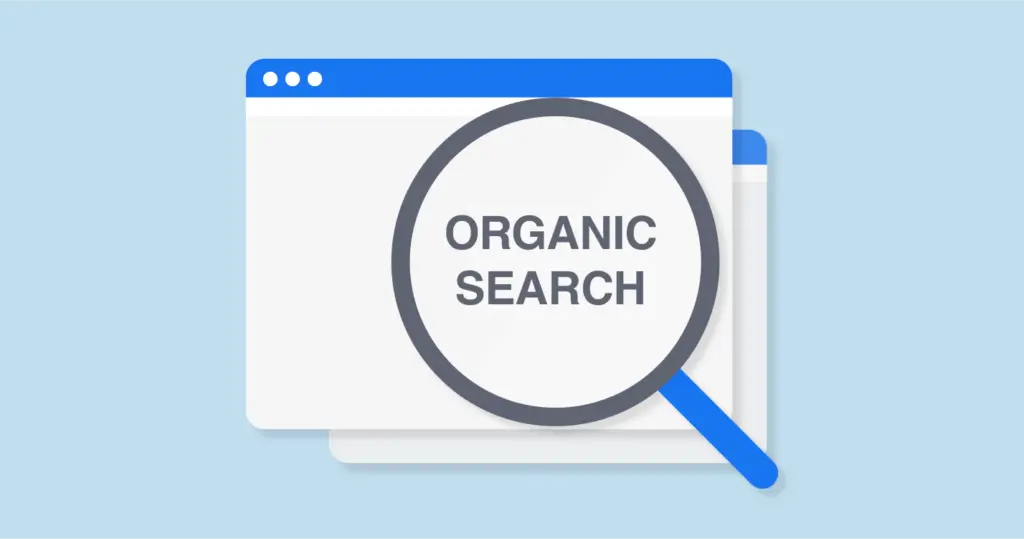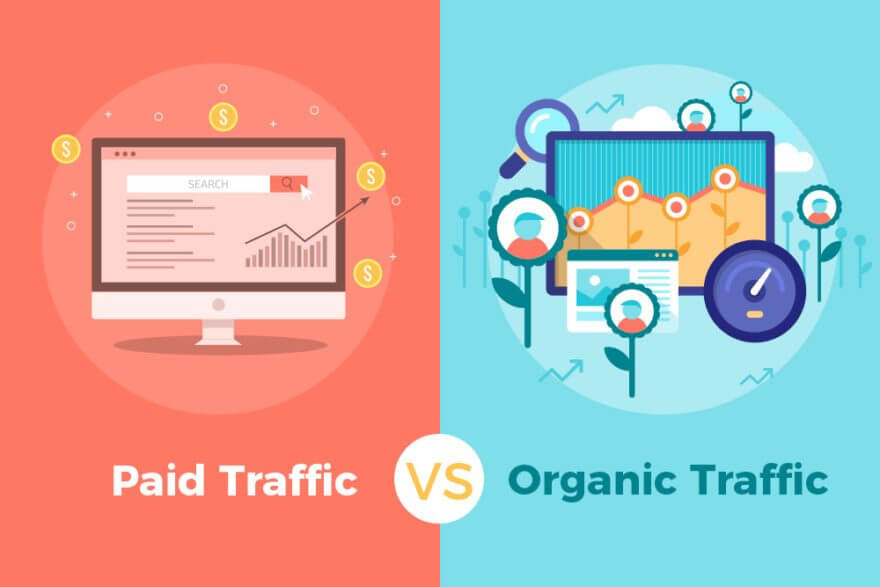As an SEO content writer, understanding organic search is essential for creating content that ranks well in search engine results pages (SERPs). Organic search refers to the natural search engine results that appear when a user types a query into a search engine without paid advertising. This article will dive into organic search, why it matters, and how to optimize your content.
What is Organic Search?
Organic search refers to the natural search engine results that appear when a user enters a query into a search engine. These results are determined by the search engine’s algorithm, which analyzes various factors to choose a web page’s relevance and authority. Organic search results are distinct from paid search results, which are ads that appear at the top of a search engine results page.
Organic search is important because it drives the majority of traffic to websites. In fact, according to a study by BrightEdge, the organic search goes 53% of website traffic, compared to only 15% for paid search. Additionally, organic search is highly targeted, as users actively search for something specific, making them more likely to convert.
How do Search Engines determine Organic Search Results?
Search engines use complex algorithms to determine which pages to display in the organic search results. While the specific algorithms used by each search engine are closely guarded secrets, we know some of the factors that are considered. These include:
- Relevance: Search engines look for pages relevant to the user’s query. This includes the page’s content and factors such as the title tag, meta description, and URL.
- Authority: Search engines look for pages that are authoritative and trustworthy. This includes factors such as the number and quality of external links pointing to the page, as well as the domain authority of the website.
- User experience: Search engines want to provide users with a positive experience, so they look for pages that load quickly, are mobile-friendly, and have a good user experience.
How to Optimize Your Content for Organic Search?
To optimize your content for organic search, there are several things you can do:
- Conduct keyword research: Keyword research involves identifying the keywords and phrases that your target audience is searching for. Once you have recognized these keywords, you can incorporate them into your content naturally and relevantly.
- Create high-quality content: High-quality content is essential for ranking well in organic search. Your content should be well-written, informative, and engaging.
- Optimize your meta tags: Your title tag and meta description are the first things users see when your page appears in the search results. Ensure they are optimized for your target keywords and accurately reflect your page’s content.
- Build high-quality backlinks: Backlinks are an essential factor in determining the authority of your page. Focus on building high-quality backlinks from authoritative websites in your industry.
- Improve your website’s user experience: A positive user experience is essential for ranking well in organic search and converting visitors into customers. Make sure your website is fast, mobile-friendly, and easy to navigate.
Frequently Asked Questions about Organic Search
How long does it take to see results from organic search optimization?
It can take several months to see results from organic search optimization, as it takes time for search engines to crawl and index your content. However, if you consistently create high-quality content and follow best practices for SEO, you should start to see results over time.
What is the difference between organic search and paid search?
Organic search refers to the natural search results displayed by search engines such as Google or Bing when users type in a query. These results are based on various factors, such as relevance to the question, website authority, and the quality of the content. The search engine’s algorithm determines any payment or advertising that does not influence organic search results.
Paid search, on the other hand, refers to advertising on search engines where a company pays to have its website or product displayed at the top of the search engine results page (SERP) when a user types in specific keywords or phrases. These paid results are typically displayed at the top or bottom of the SERP and are identified as “sponsored” or “ad.” The ranking of paid results is based on the amount paid per click and the ad’s relevance to the search query.
In summary, organic search results are the natural, unpaid listings that appear based on the search engine’s algorithm, while paid search results are advertisements companies pay to appear at the top of the SERP based on specific keywords or phrases.
Can I optimize for both organic and paid searches?
Absolutely! Many businesses use organic and paid searches to maximize their visibility in the search results. While paid search can provide immediate results, it can also be expensive, so balancing paid and organic search strategies is essential.
Conclusion
Organic search is a crucial component of any successful SEO strategy. By understanding how search engines determine organic search results and optimizing your content for organic search, you can drive more targeted traffic to your website and increase your chances of converting visitors into customers. Remember to focus on creating high-quality content, conducting keyword research, and building high-quality backlinks, and you’ll be well on your way to success in the world of organic search.





